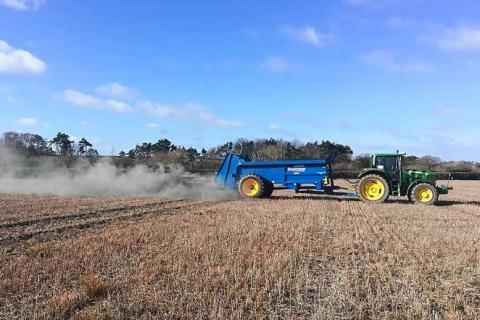Submitted by Administrator on Mon, 20/07/2020 - 15:21

Crushed silicate rock could help absorb carbon. Picture by Dr Dimitar Epihov
Groundbreaking findings in the search for realistic means to remove carbon dioxide from the troposphere have been published in a new article in Nature led by Professor D. J. Beerling, Director of the Leverhulme Centre for Climate Change Mitigation, at the University of Sheffield. The research shows the potential of enhanced silicate rock weathering (ERW), deployable with croplands, as means to remove carbon dioxide, with possible co-benefits for improved food and soil security, and reduced ocean acidification. C-EENRG fellows J.-F. Mercure, H. Pollitt and N. Edwards co-authored the study, which is one of the key outputs of the Leverhulme Centre for Climate Change Mitigation. Professor J. E. Viñuales from C-EENRG, who is a member of the International Advisory Board of the Leverhulme Centre and who did not participate in the research, emphasised the importance of the findings, which could be a game-changer in the search for realistic and low-risk strategies to remove greenhouse gases in the near term, at a time when the time-window for decisive action is rapidly closing.

